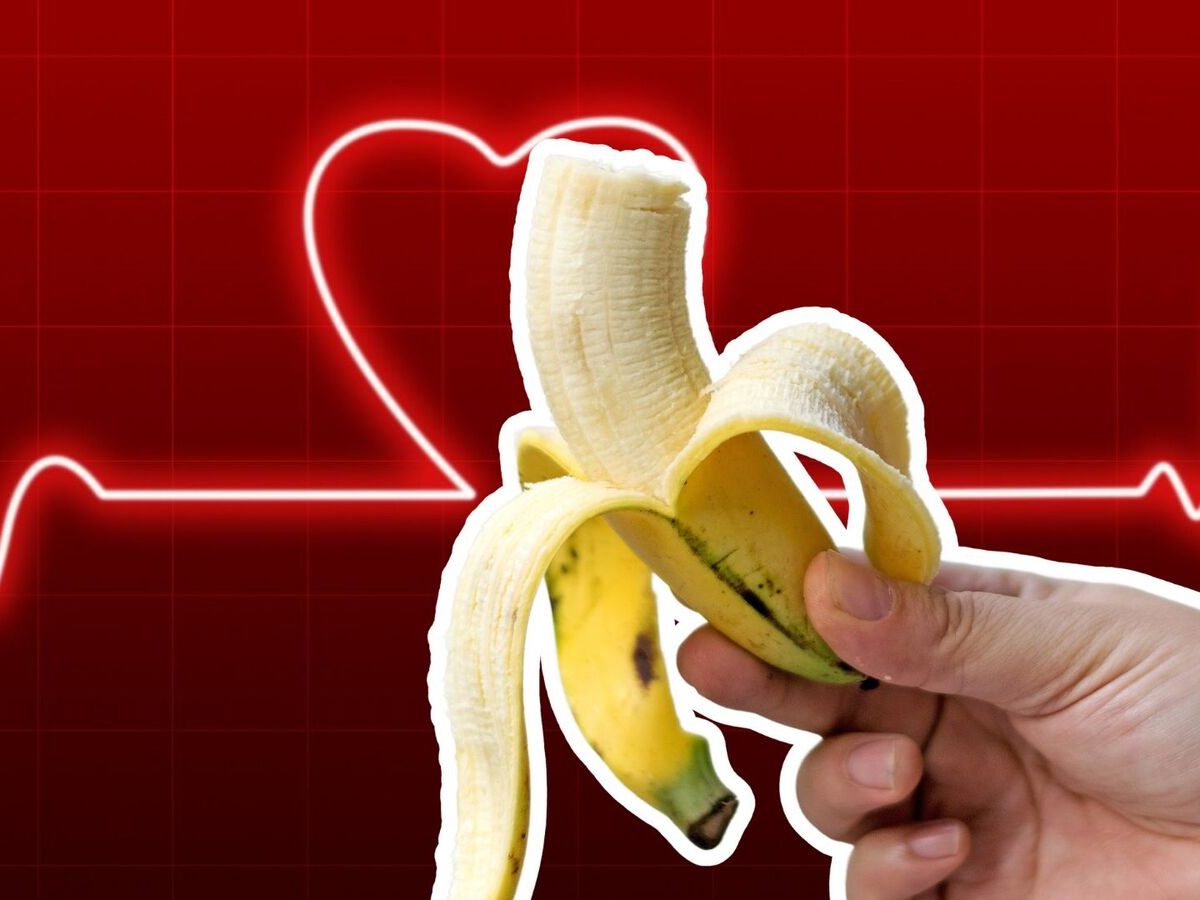Bananas – a healthy snack, right?
For many, these yellow delights are a welcome treat.
But for some, bananas can bring an unwelcome guest: heartburn.
The burning sensation in the chest, the bitter taste in the mouth – it’s a frustrating experience.
Surprisingly, the humble banana might be the culprit behind your discomfort.
While generally considered a stomach-friendly food, bananas can trigger heartburn in certain individuals.
The reason?
It’s all about ripeness, individual sensitivity, and how your body handles bananas’ starches and sugars.
General Understanding of Heartburn

| Statistic Category | Detail | Percentage |
|---|---|---|
| Prevalence in the U.S. | Weekly incidence of GERD symptoms | 30.9% |
| Global Prevalence | North America | 18-28% |
| Europe | 9-26% | |
| East Asia | 3-8% | |
| Middle East | 9-33% | |
| Persistent Symptoms | Despite treatment with PPIs | 54.1% |
Heartburn, often described as a burning sensation or discomfort in the chest area, occurs when stomach acid flows back into the esophagus, the tube that connects the mouth to the stomach.
This table provides an overview of GERD prevalence globally, including the US weekly symptom incidence and prevalence rates in North America, Europe, East Asia, and the Middle East.
It also highlights the significant percentage of individuals experiencing persistent symptoms despite PPI treatment, revealing challenges in managing this widespread condition.
Common heartburn symptoms include a burning feeling in the chest, especially after eating or lying down.
Some individuals may also experience a sour or bitter taste in the mouth, difficulty swallowing, or occasional chest pains.
Some common triggers and dietary factors are contributing to heartburn-
- Certain foods, behaviors, and conditions can contribute to the development of heartburn, making it essential to identify and manage these triggers.
- Acidic, spicy, or high-fat foods can increase the risk of heartburn. Examples include tomatoes, citrus fruits, fried or greasy foods, and heavy meals close to bedtime.
- In addition to dietary factors, lifestyle habits such as smoking, alcohol consumption, being overweight, and experiencing high levels of stress can also exacerbate heartburn symptoms.
Bananas, Digestive Health, and Heartburn
| Nutrient | Amount per Medium Banana | % Daily Value* |
|---|---|---|
| Potassium | 422 mg | 9% |
| Dietary Fiber | 3.1 g | 11% |
| Vitamin C | 10.3 mg | 11% |
| Vitamin B6 | 0.43 mg | 25% |
| Magnesium | 32 mg | 8% |
Note: *% Daily Values are based on a 2,000 calorie diet. Individual needs may vary.
- Bananas are a nutrient-dense fruit packed with essential vitamins and minerals.
- They are a good source of potassium, dietary fiber, vitamin C, B6, and magnesium.
- These nutrients contribute to overall digestive health.
- Fiber aids in regular bowel movements, while potassium helps with smooth muscle function in the digestive tract.
- Vitamin B6 and C support a healthy immune system, which is important for gut health.
- Bananas are often recommended as part of the BRAT diet (bananas, rice, applesauce, toast) for individuals recovering from conditions like diarrhea or an upset stomach.
- Their soft texture and binding properties can help alleviate digestive discomfort and promote a return to regular bowel function.
Bananas are slightly alkaline, believed to help neutralize excess stomach acid and soothe the digestive tract’s lining.
Ripe bananas have a soft, easy-to-digest texture, making them a comforting choice for individuals with sensitive stomachs or digestive issues.
How Ripeness In Bananas Influences the Likelihood of Causing Heartburn

The ripeness of a banana can impact its sugar content and acidity.
More ripe bananas have higher sugar levels, potentially leading to increased gastric fermentation and pressure on the esophageal sphincter, contributing to heartburn.
1. Understanding the Complexities
Everyone’s digestive system is unique.
Some individuals with conditions like gastroesophageal reflux disease (GERD) or irritable bowel syndrome (IBS) may find that bananas, despite their perceived benefits, can trigger heartburn due to their sensitivities.
Some studies suggest that bananas may help alleviate heartburn due to their alkaline nature.
Others indicate that the fruit’s high fructose content or ability to relax the esophageal sphincter could exacerbate acid reflux in certain individuals.
- The ripeness of a banana significantly affects its chemical composition, particularly the transformation from starches to sugars.
- As bananas mature, the starch content gradually converts into simpler sugars through natural enzymatic processes.
- From a scientific perspective, less ripe bananas contain higher levels of resistant starch, a dietary fiber that resists digestion in the small intestine.
- As the banana ripens, the resistant starch breaks down into simpler sugars like fructose and glucose, which are more easily digested and absorbed by the body.
2. Less Ripe Bananas, More Resistant Starch
Resistant starch is a dietary fiber that is not broken down by the enzymes in the small intestine.
Instead, it passes through to the large intestine, where it undergoes fermentation by the gut bacteria.
This fermentation process can lead to increased gas production, which may increase pressure on the lower esophageal sphincter (LES), the valve separating the stomach from the esophagus.
This increased pressure can cause the LES to open, allowing stomach acid to reflux into the esophagus, resulting in heartburn symptoms.
If you’re prone to heartburn or sensitive to resistant starch, choosing bananas with fewer green tinges and more yellow coloration is advisable. This indicates a higher level of ripeness.
3. Riper Bananas Having Higher Sugar Levels and Reduced Starch
- As bananas ripen, the resistant starch breaks down into simpler sugars like fructose and glucose, making them easier to digest and potentially reducing the risk of bloating and gas that could lead to heartburn.
- While riper bananas may be easier to digest due to lower resistant starch content, their higher sugar content could still pose issues for some individuals by potentially increasing gastric content and pressure on the esophageal sphincter.
- If you have acid reflux or heartburn, riper bananas with a deeper yellow color and brown speckles might be a better choice.
- However, individuals with diabetes or other conditions that require monitoring sugar intake may need to be mindful of their banana consumption, regardless of ripeness.
The ripeness of bananas plays a crucial role in determining their potential to cause heartburn, with less ripe bananas containing more resistant starch and riper bananas having higher sugar content.
Understanding these differences can help individuals make informed choices about their banana consumption based on their health needs and sensitivities.
Bananas contain carbohydrates, primarily in the form of sugars like fructose and glucose.
Due to the action of gut bacteria, these sugars can ferment in the digestive system, particularly in the stomach and small intestine.
Effects of Gas: The fermentation process produces gas, which can accumulate in the stomach, increasing internal pressure and causing discomfort, bloating, and a sensation of fullness.
Interplay Between Banana Ripeness and Heartburn
1. Ripeness and Sugar Content
The ripeness of a banana plays a role in its potential to cause heartburn.
As bananas ripen, their sugar content increases, providing more fermentable material for gut bacteria, which can exacerbate the fermentation process and subsequent gas production.
2. Digestive Tolerance
Individuals may have varying tolerance levels to the effects of ripe versus unripe bananas. Some may more readily experience heartburn with riper bananas due to their higher sugar content, while others may be more sensitive to the resistant starch in unripe bananas.
Practical Advice to Manage Heartburn
Monitoring your body’s response to different stages of banana ripeness is recommended to manage heartburn symptoms related to bananas.
Keep track of when you experience discomfort and adjust your banana consumption accordingly.
You may find that you tolerate less ripe or riper bananas better.
If bananas consistently trigger heartburn for you, consider exploring alternative sources of potassium and fiber, such as avocados, sweet potatoes, or high-fiber grains.
Incorporating heartburn-friendly foods like ginger, oatmeal, or yogurt may help alleviate symptoms.
Managing Heartburn from Bananas
| Step | Action | Details | Next Steps |
|---|---|---|---|
| 1 | Eat a Banana | Consume a banana and monitor for any heartburn symptoms. | If heartburn occurs, proceed to Step 2. |
| 2 | Assess Banana Ripeness | Determine the ripeness: Green, Perfectly Ripe, Overripe. | Adjust banana ripeness based on symptoms. |
| 3 | Adjust Ripeness & Reassess | Based on the initial response, try a banana at a different ripeness level: Less or more ripe. | If symptoms persist, consider alternatives. |
| 4 | Try Alternatives | If symptoms continue regardless of ripeness, opt for heartburn-friendly alternatives. | If there is no improvement, proceed to Step 5. |
| 5 | Consult Healthcare Provider | Seek professional advice if adjusting your diet does not alleviate symptoms. | Follow professional guidance for management. |
1. Strategies for Minimizing Heartburn
Opting for less ripe bananas may help reduce the likelihood of heartburn due to their lower sugar content and higher levels of resistant starch.
The resistant starch in less ripe bananas is less likely to ferment quickly in the stomach, potentially reducing gas production and pressure on the esophageal sphincter.
Look for bananas with more green than yellow in their peel, and avoid those with brown spots or a fully yellow appearance.
Store them at room temperature to maintain their desired ripeness.
- Pairing Bananas with Stomach-Friendly Foods Consider combining bananas with other foods that can help mitigate potential heartburn effects.
- Oatmeal, for instance, can absorb excess stomach acid, while non-citrus fruits like berries or melons can provide a balancing effect.
- A simple and healthy snack idea is to top a bowl of oatmeal with sliced bananas and a sprinkle of cinnamon or blend bananas into a smoothie with yogurt and a handful of berries.
Paying attention to portion sizes and the timing of banana consumption can also help manage heartburn.
Eating smaller portions can reduce the load on the stomach, potentially decreasing the likelihood of acid reflux.
Additionally, avoiding eating bananas on an empty stomach or immediately before bedtime is advisable, as these situations can increase the risk of heartburn.
2. Alternative Remedies and Preventative Measures
Maintaining a healthy weight and avoiding tight clothing around the waist can significantly reduce intra-abdominal pressure and the occurrence of heartburn.
Excess weight and constricting garments can increase pressure on the stomach, potentially weakening the esophageal sphincter and allowing acid to reflux.
Over-the-counter remedies When heartburn symptoms occur, effective over-the-counter remedies such as antacids or acid blockers can provide relief.
However, it’s essential to use these medications judiciously and as directed, as they should not replace dietary and lifestyle changes for long-term management of heartburn.
- Seeking Professional Help If heartburn persists despite making dietary and lifestyle adjustments, consult a healthcare provider or a dietitian.
- They can help identify underlying causes, rule out potential issues, and develop a personalized plan for managing heartburn effectively.
- During a consultation, expect to undergo a dietary assessment, possible testing, and discussions about appropriate treatment options tailored to your specific needs.
Summing It Up
This fruit holds a dual potential, considering the nuances of bananas’ effects on acid reflux.
While bananas generally promote digestive comfort, their ripeness and individual digestive responses can cause variability in their impact.
The transformation of starches to sugars in riper bananas may lead to fermentation in the gut, occasionally heightening heartburn symptoms.
However, bananas’ nutritional benefits, such as potassium and dietary fiber, advocate for their inclusion in a balanced diet.
Observing how your body reacts to different ripeness stages can help manage consumption properly.
For those frequently experiencing discomfort, seeking advice from a medical professional is recommended.







0 Comment